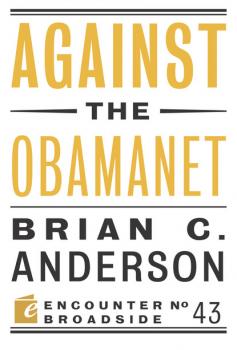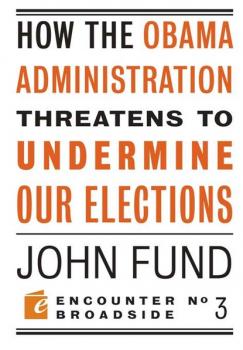Encounter Broadsides
Скачать книги из серии Encounter BroadsidesThe Fracturing of the E.U.
The long-simmering crises challenging the European Union have worsened with the 2008 financial crisis, the influx of Middle East refugees in 2015, several bloody terrorist attacks, and England’s departure from the E.U. in 2016. Yet these are all the wages of persistent flaws in the idea of the Union itself. Excessive regulations, welfare, and taxes impede economic growth. Centralization of power in Brussels has created a “democracy deficit” and lessened autonomy and freedom. Populations are shrinking, and unvetted and unassimilated migrants have increased crime and terrorist attacks. All these problems reflect the lack of any unifying set of beliefs and principles that could unite 27 diverse cultures and peoples. Europe is fractured and adrift, its peoples unsure for what they should fight or die for.
How Progressive Cities Fight Innovation
Technology continues to unlock new ways for Americans to live and work. To illustrate these changes, this broadside explores the promise of online platforms such as Uber and Airbnb. Unfortunately, instead of embracing innovation, many cities insist on applying antiquated regulations or completely banning these new services to protect special interests—at the expense of workers and consumers. These fights go far beyond the sharing economy. To promote the benefits of new technology, it is time for states to step up and overrule cities when local policies threaten innovation. If cities are going to remain a driving force for economic progress, then states need to save so-called progressive cities from themselves.
How The Obama Administration Threatens Our National Security
In this revealing broadside, Victor Davis Hanson explains how President Obama has imprinted his domestic ideology of victimhood onto a therapeutic, Carter-inspired foreign policy. In Obama’s vision, the United State renounces its role as a defender of the postwar order and instead becomes an agent of global change – one that questions our existing system of defense, values, alliances, interests, and commerce.In tactical terms, Obama believes that his 'hope-and-change' rhetoric and non-traditional background give him a moral authority abroad that will trump any inconsistency in U.S. foreign policy. But, as Hanson explains, at some future date, regional hegemons like Iran, Russia and China will demand even more acquiescence on the theory that the present government of the United States either will not object, or will do nothing concrete to stop them.
Twisting Title IX
This is the story of how Title IX, a 1972 law intended to ban sex discrimination in education, became a monster that both the federal government and many college administrators treat as though it supersedes both the U.S. Constitution and hundreds of years of common law. It's a story about the victims of this law—men and women both—and of the unaccountable government bureaucrats at the Departments of Education and Justice who repeatedly prioritize an extreme brand of politics over free speech, fundamental fairness, and basic human decency. But while help may come too late for many of the present victims of Title IX abuse, there are still measures that colleges and courts can take to curb these abuses until Congress acts—or we see a Presidential administration that cares more about restoring justice and the rule of law than it does about sex and gender politics.
Against the Obamanet
The Internet is a platform of ceaseless innovation that has transformed our lives in a remarkably short time. And the United States has led that revolution: of the 15 largest websites in the world, 10 are American. But all that is now under threat. In February 2015, the Federal Communications Commission imposed extensive regulatory controls on this vibrant digital universe in an effort to mandate “network neutrality.”In this Broadside, Brian C. Anderson explains how the FCC’s power grab for “neutrality” could be devastating for the most dynamic sector of the U.S. economy. Network neutrality is at odds with everything that made today’s Internet the market cornucopia that it is, and we must protect it from the encroach¬ments of Washington in order to foster its further growth.
Obama and America's Public Sector Plague
Public-sector employees enjoy much more generous pay and benefit packages than private-sector workers, including guaranteed pensions and retiree health benefits whose long-term costs threaten to break the backs of state and local taxpayers. In this provocative Broadside, E.J. McMahon explains how the policies of the Obama administration have shielded most state and local government employees from the worst effects of the Great Recession. President Obama’s stimulus bill helped most states and local governments continue raising average employee pay even at the depths of the downturn. In the name of promoting “economic recovery,” the president wants to spend tens of billions more to prop up government payrolls and preserve cushy employee benefits. Meanwhile, public-sector labor unions are exploiting their influence in Washington in an bid to expand and strengthen their power throughout the country. The president’s push for more federal spending to preserve the status quo in state and local government is a wasted opportunity to promote much-needed structural reform.
How the Obama Administration Threatens to Undermine Our Elections
One of the easiest ways to increase public cynicism about elections is to change the rule book to make the laws governing how we vote more vague and less rigorous. “Reforms” have been passed amid claims they would increase voter turnout. They haven’t – but they have made it easier to commit absentee ballot and other fraud.<BR><BR>In this explosive broadside, John Fund exposes the new package of reforms being pushed by Obama and liberals in Congress. First, the White House has declared it will exercise oversight of the Census next year, compromising the apportionment of Congressional seats and federal dollars. On top of that, liberals in Congress are pushing for “universal voter registration,” a reform that is already used in a half dozen states but has only resulted in serious fraud.<br><BR>Making it easier to vote is a worthy goal. But pushing dubious measures puts the very foundation of our democracy at risk.
The Fallacy of Net Neutrality
“There is little dispute that the Internet should continue as an open platform,” notes the U.S. Federal Communications Commission. Yet, in a curious twist of logic, the agency has moved to discontinue the legal regime successfully yielding that magnificent platform. In late 2010, it imposed “network neutrality” regulations on broadband access providers, both wired and wireless. Networks cannot (a) block subscribers’ use of certain devices, applications, or services; (b) unreasonably discriminate, offering superior access for some services over others. The Commission argues that such rules are necessary, as the Internet was designed to bar “gatekeepers.” The view is faulty, both in it engineering claims and its economic conclusions. Networks routinely manage traffic and often bundle content with data transport precisely because such coordination produces superior service. When “walled gardens” emerge, including AOL in 1995, Japan’s DoCoMo iMode in 1999, or Apple’s iPhone in 2007, they often disrupt old business models, thrilling consumers, providing golden opportunities for application developers, advancing Internet growth. In some cases these gardens have dropped their walls; others remain vibrant. The “open Internet” allows consumers, investors, and innovators to choose, discovering efficiencies. The FCC has mistaken that spontaneous market process for a planned market structure, imposing new rules to “protect” what evolved without them.
Obama and the Crash of 2013
Most people do not know that already enacted in current law for 2013 are increases in the top tax rates of virtually every major federal tax. That is because the tax increases of Obamacare become effective that year, and the Bush tax cuts expire, which Obama has refused to renew for the nation’s small businesses, job creators and investors.Also by 2013 Obama’s regulatory tsunami will be building to a crescendo of increased costs on the economy. And the Fed, now committed to maintaining loose monetary policy through the election, will be reversing course right after to head off inflation, which will add to the contractionary effects on the economy.The result will be one whopping, horrendous, record shattering recession, unless America changes course. In this explosive Broadside, former Reagan White House policy advisor Peter Ferrara exposes the final calamitous consequences of Obama's assault on prosperity
A Century of Palestinian Rejectionism and Jew Hatred
Palestinian President Mahmoud Abbas has launched an international campaign to achieve recognition by the United Nations for an independent Palestinian state. Abbas and his international supporters claim that only Israel (with the United States) stands in the way of this act of historical justice, which would finally bring about peace in the Middle East.In this eye-opening Broadside, Sol Stern debunks the Palestinians’ claim and shows that Abbas has been lying about the origins and history of the conflict. Palestinian leaders have rejected partition plans that would have given them much more land for their independent state than the Jews were offered for theirs. Rather than being the innocent victims of a “dispossession” at the hands of the Israelis, the Palestinians rejected reasonable compromises and instead pursued their aim of getting rid of the only Jewish state in the world.









